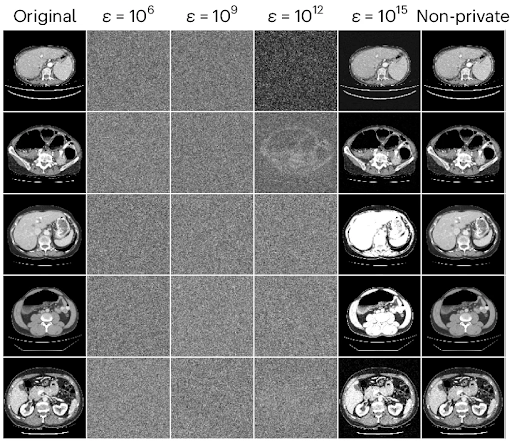While palliative care remains an uncommon offering among home-based health care providers, forward-thinking providers have recognized a growing market demand and are strategically expanding their service offerings to include palliative care solutions.
Expanding service lines to include palliative care can help home-based care providers stand out from their peers, industry insiders told Home Health Care News. However, a significant knowledge gap is slowing the adoption of palliative care within the home health community.
Home health care clinicians, patients and caregivers all report insufficient knowledge of palliative care, according to a recent study conducted by Columbia Nursing research and published in the journal Home Healthcare Now.
“Most patients and caregivers had never heard of palliative care, or only knew it by name,” Ashley Chastain, the study’s co-author and senior project director of Columbia Nursing’s Center for Health Policy, told Home Health Care News. “When we conducted the survey analysis, we saw that there were several misconceptions that were prevalent among patients and caregivers, and those were primarily around pain management, opioid use and end-of-life care.”
Researchers found that the majority of survey respondents assumed that palliative care was the same as hospice or end-of-life care. Only 13% of the caregivers and patients surveyed responded that they had “sufficient” knowledge regarding palliative care.
Confusion about palliative care can often lead to delays in seeking out appropriate care, and resistance to this care if offered, according to Chastain.
Palliative care’s origins as a medical subspecialty may be among the reasons for widespread misunderstandings.
“Historically, palliative care was associated with hospice, and I think it’s still taking a while to disentangle, as it’s become a specialty on its own — and a specialty that really is helping people who are not just near the end-of-life, but helping people living with serious illnesses,” Margaret McDonald, associate vice president of the center for home care policy and research at VNS Health, told HHCN.
New York City-based VNS is a payvider that offers home, hospice, and personal and private care services.
The largest distinction between palliative care and hospice is that palliative care can be provided simultaneously with curative care or disease-modifying therapies, Rory Farrand, vice president of palliative and advanced care at the National Alliance for Care at Home, previously told HHCN. To enroll in hospice, a patient must have a six-month terminal prognosis and end curative treatment.
While 37% of the home-based care clinicians surveyed had provided hospice or palliative services in the past, and 46% had received palliative care training, 45% offered incorrect answers when asked about pain management, according to the study.
Clinicians also reported limited knowledge about the ethical and legal aspects of palliative care. Nevertheless, 97% of the clinicians surveyed said they believe that palliative care education was important.
Home-based care patients could benefit from palliative care services, according to the study’s authors. However, these services aren’t prevalent among home-based care organizations. Only 7% of palliative care Medicare programs are operated by home health agencies, according to 2023 data from the Center to Advance Palliative Care and Palliative Care Quality Collaborative.
WesleyLife At Home enters the palliative care space
Though home-based care organizations make up only a small portion of palliative care providers, several companies, including AccentCare, Alivia Care, Choice Health at Home and Gentiva, offer these services. These programs are more prevalent among companies that also provide hospice. Palliative care is often seen as a loss leader that could boost earlier hospice referrals when a patient becomes eligible.
Earlier this year, WesleyLife at Home joined the ranks of the home-based care companies expanding into palliative care.. Des Moines, Iowa-based WesleyLife at Home is the fourth-largest home health provider in the state, serving 11 counties.
WesleyLife at Home entered the palliative care space because of the sizable demand in its market.
“In central Iowa, there is a huge gap in the market for palliative care,” Aimee Spores, director of hospice and palliative care at WesleyLife at Home, told HHCN. “People [who] qualify for palliative care can have transportation barriers. They could have issues with mobility. They could just not be feeling well and don’t want to add another visit. Bringing our program into the home was really paramount to not only being successful in the market, but then getting the care and the support to people where they really need it.”
So far, palliative care has been the most helpful to WesleyLife at Home patients who are struggling with their disease progression, according to Spores.
Research shows that palliative care is instrumental in generating health care savings by reducing the frequency of high-acuity interventions, including emergency department visits.
For Alivia Care, offering palliative care sets the organization apart from its competition.
“If you’re in a crowded market, having a palliative care specialty program or focused care program can be a differentiator for you and it can give you an opportunity to look for referrals and patients who might come from oncologists, or those treating advanced heart disease or breathing disorders,” Alivia Care CEO Susan Ponder-Stansel, previously told HHCN.
WesleyLife at Home is aware of the palliative care knowledge gap and seeks to address it head-on.
“Providing staff education within our building and within the state has been really essential, really just being out there and talking about the program consistently, has been the most helpful,” Spores said.
Looking ahead, WesleyLife at Home has identified several key areas of focus to continue to hone its palliative care program.
“We’re focused on that aggressive symptom management,” Spores said. “We’re focused on reducing hospitalizations. We’re focused on providing comfort and dignity and having goals of care conversations. I think education is the big piece, and we are hitting the ground pretty hard.”
The post Palliative Care in Home Health: Misconceptions and Market Opportunities appeared first on Home Health Care News.











